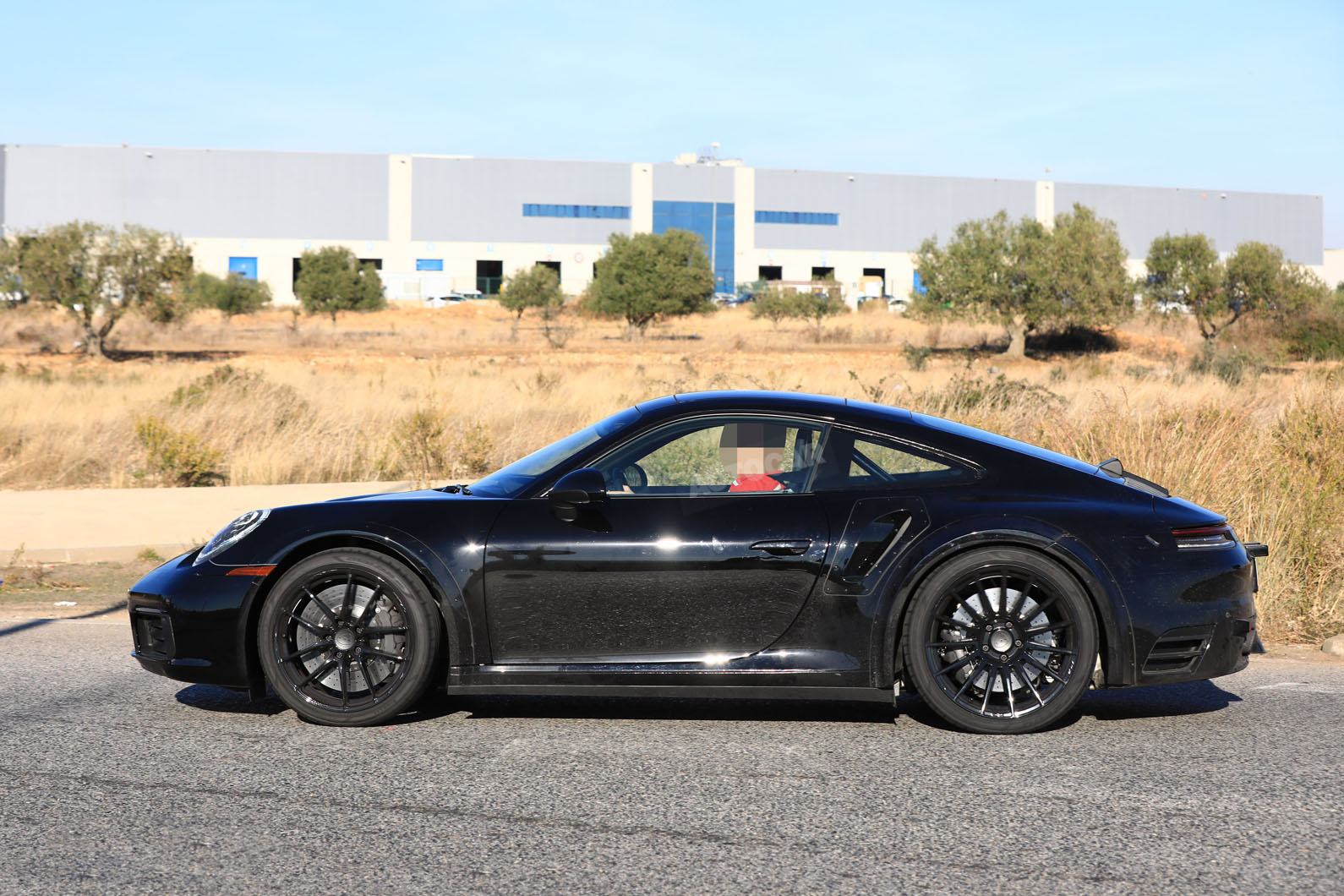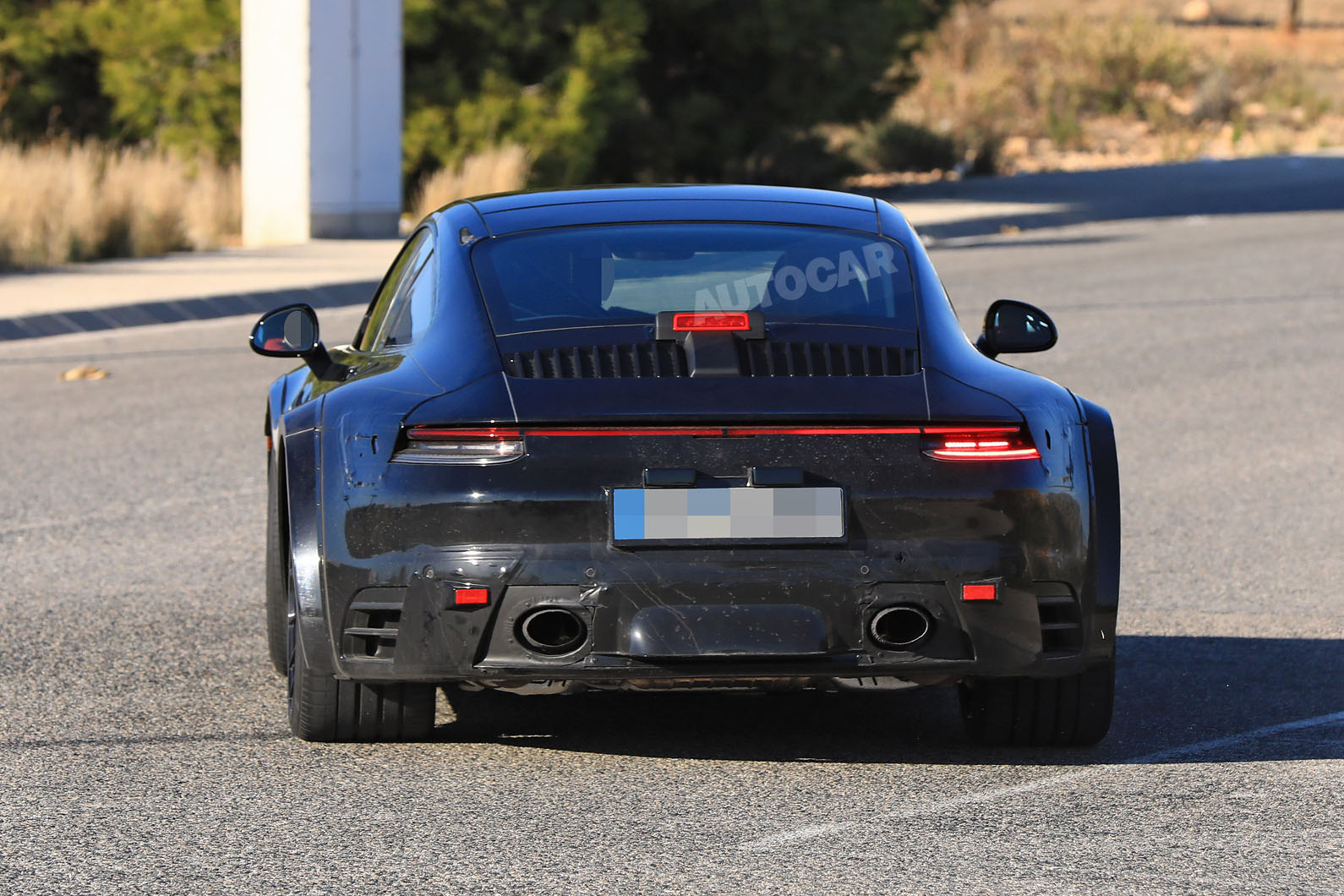The 2019 Porsche 911 range will be headed by a 630bhp Turbo S model, powered by a ramped up version of the current car's 3.8-litre flat six to make it a genuine threat to the Ferrari 488 GTB.
The future flagship series model, recently spotted testing in Germany, will borrow engine hardware from the GT2 RS to ensure that its output jumps by 50bhp compared with today's Turbo S - edging it to within 30bhp of the 488 GTB.
The regular Turbo model that sits beneath the S is predicted to have 592bhp, which is 61bhp more than today's 991 version. Both the Turbo and Turbo S will be capable of more than 200mph.
Porsche's 992 911 range will be the first to feature a hybrid model, but the brand has chosen to stick with pure combustion engine power for its all-wheel-drive Turbo variants in a bid to save weight, maximising their bhp-per-tonne outputs.

Performance will, therefore, be scintillating, with the 2.9sec 0-62mph time of the current Turbo S beaten and the Turbo ducking beneath the 3.0sec mark for the first time. Of the Porsche cars in production after the 992's launch, only the electric Mission E will be quicker off the line - although it won't join the family until 2020.
Evolved chassis
The 992 911 will be built around an evolved MMB structure with a wider footprint than the current 991. The photographed test car's wheel arch extensions are evidence of the wider track, which will give the 992 improved high-speed stability and improved space for rear passengers. The car's length will remain unchanged.
Modular design will enable the structure's use for next-generation versions of the Boxster and Cayman, while it could also influence the design and engineering of future Audi R8 and Lamborghini Huracán models. The updated structure will make more extensive use of high-strength steel and aluminium in order to cut weight.
Changes to the eighth-generation 911's exterior will be small, but their impact on aerodynamics is said to be big. The car will feature more active panels and a full-width rear wing. An active front spoiler is also a possibility, although this hasn't been seen on test cars so far.

Engines and power outputs
The future 911 range, including the GT3, will exclusively use turbocharged six-cylinder engines, marking the end of naturally aspirated units for the line-up.
The GT3 will deliver more than 500bhp, while the standard models are set to get an extra 10-15bhp over today's Carrera and Carrera S. The current Carrera and Carrera S deliver 364bhp and 414bhp respectively, so the 992-generation 911 will produce 375bhp to 429bhp.
A hybrid 911 will also be introduced to the range in 2020. It will run the flat six with an electric motor, providing limited all-electric and performance-boosting functions.
The electrified powertrain has provided engineers with a packaging challenge, but product line director Erhard Mössle, now retired, previously told Autocar that "CO2 regulations in 2020" have spurred on the hybrid model's development.
Interior and dashboard
The latest Cayenne and Panamera offer the biggest clues as to what the 992 911's dashboard design will be like. Spotted development cars have featured a central rev counter that's flanked by two digital screens, located in a cluster that curves around the centre console touchscreen.
The technology mimics the wraparound design of Volkswagen Group stablemate Audi and its Virtual Cockpit, but keeps a more traditional layout with revs the main focus.
Like its forebears, the 992 911 will be available in convertible form, with a new Targa also on the cards.
Sam Sheehan and Greg Kable
Read more:
We've driven the 2017 Porsche 911 Carrera 4 GTS PDK - check out our review here
Ruf CTR - the 700bhp sports car inspired by the Porsche 911